LIBERATION Vol. 37 No. 2
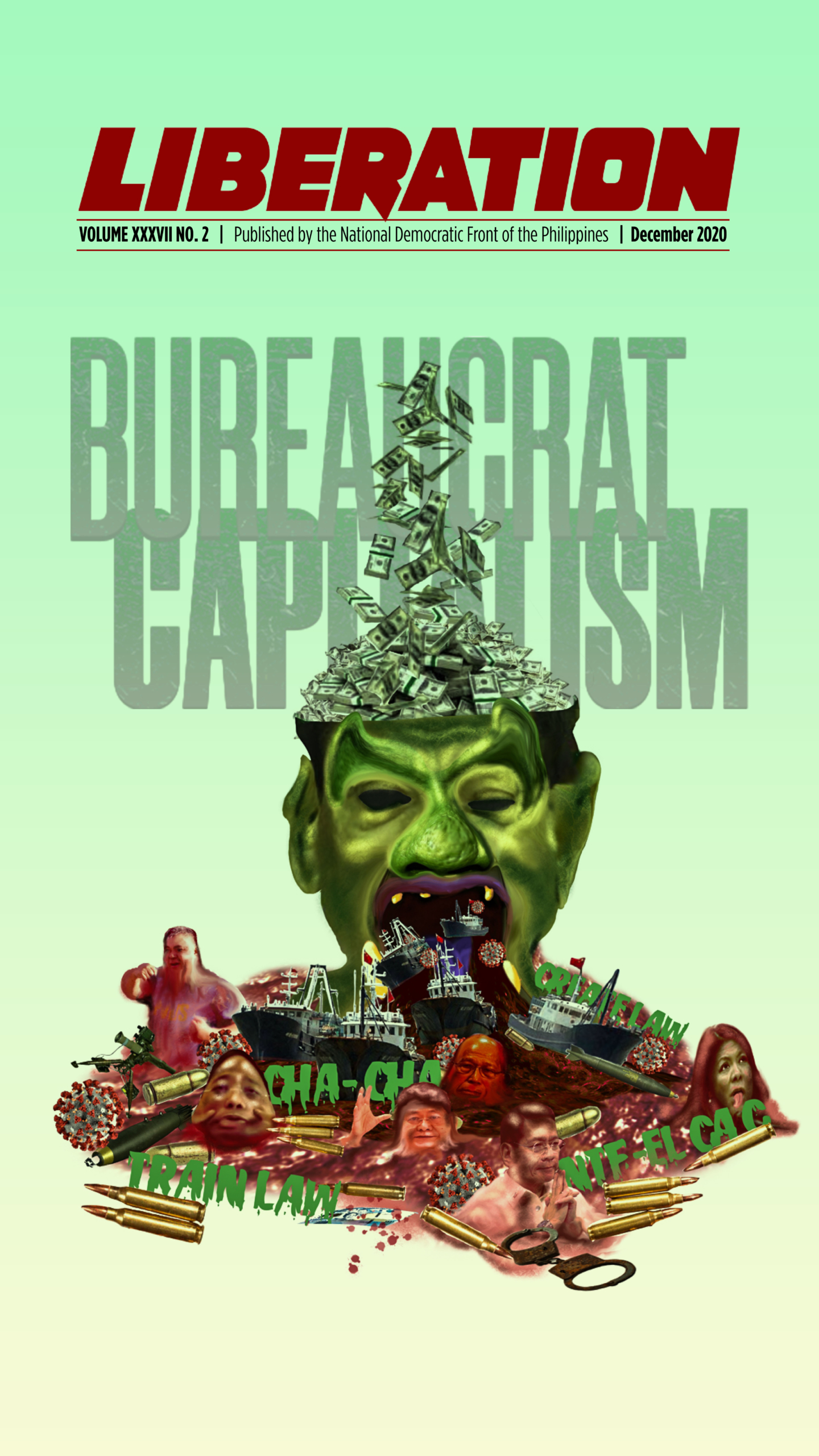

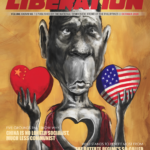
DOWNLOAD Issue Volume 37 No 1
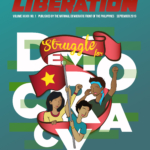
DOWNLOAD Issue Vol. 36 No. 1
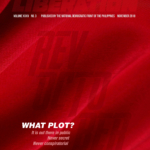
Download Issue Vol. 35 No. 3
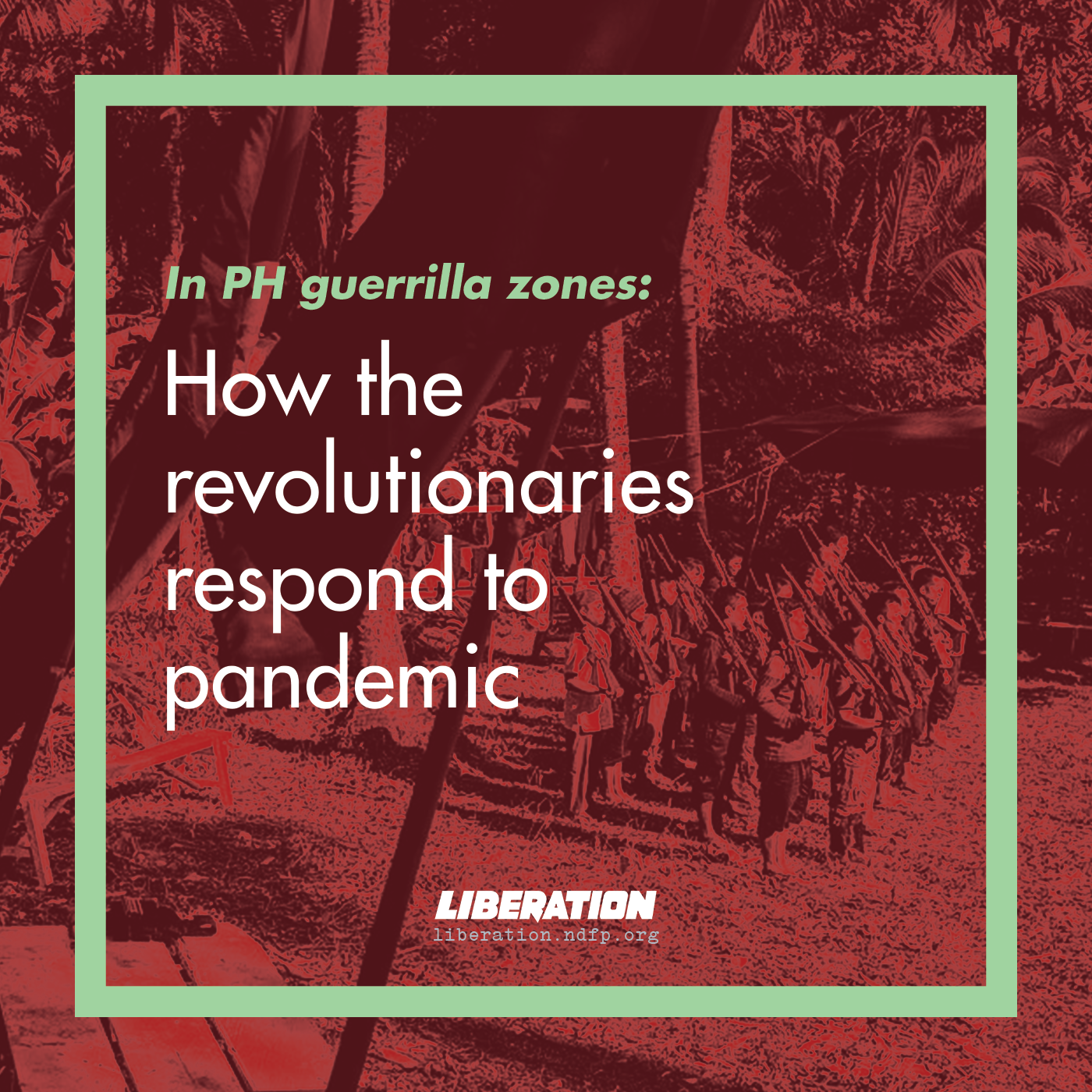
Immediately after the World Health Organization declared the Covid-19 pandemic, the Communist Party of the Philippines (CPP) directed the fighters of the New People’s Army to “step up efforts to render social, economic, medical, and public health services to the people.”
On March 26-April, 2020, the CPP also declared a ceasefire as a response to the call of UN Secretary General Antonio Guterres for “a global ceasefire between warring parties for the common purpose of fighting the Covid-19 pandemic.”
https://cpp.ph/statements/npa-is-already-geared-to-covid-19-response-even-without-ceasefire/
The Party and the people’s army mobilized the organs of political power and the revolutionary mass organizations affiliated with the National Democratic Front nationwide to conduct information campaign on Covid-19 virus and to implement social services and community actions “to respond comprehensively and extensively to the threat of the virus.”
NPA units worked with local people’s health committees, carried out mass campaigns, and enhanced the long-time practice of collective action. Providing services to the masses is among the functions of the NPA and the organs of political power in the guerrilla fronts which, expectedly, the reactionary government refused to acknowledge up to now.
The various services put to good use the contributions of friends and allies, and revolutionary taxes—shaming the reactionary government’s trillions of annual budget and trillions more of loans spent to run its war machine and line the bureaucrats’ pockets.
The NPA is not only a fighting unit but also engages in agrarian revolution and mass base building—which continue even during pandemic and under attacks by the enemy forces. Base building for the NPA includes organizing, production work, cultural activities, and health care trainings and services, among others. It works with the local Party organization and revolutionary mass organizations in the communities to set up health committees or medical groups. Even before the pandemic, NPA units and local branches of the Party held clinics for the masses, conducting check up for high blood pressure, diabetes, cough and common colds, dental services, and minor operations. Alternative treatments were used such as acupuncture and herbal remedies.
https://liberation.ndfp.info/main-stream/health-services-benefit-peasants-indigenous-peoples-in-guerilla-fronts/
https://cpp.ph/statements/reply-to-questions-by-kavel-alpaslan-of-gazete-duvar-on-the-revolutionary-health-system-and-response-to-the-covid-19-pandemic/
The tyrannical regime of Duterte prevented the NPA from carrying out its duty to provide assistance to the people in the revolutionary areas to overcome the Covid-19 crisis. It violated its own ceasefire. It attacked communities and went on a shopping spree for fighter jets, attack helicopters, drones, tanks, bombs and other military equipment—a huge amount of money that was better spent on mass testing and strengthening the health system.
https://liberation.ndfp.info/a-public-health-system-battered-by-the-regimes-budget-cuts-corruption-cases-and-neoliberal-policiAes/
https://liberation.ndfp.info/counter-current/dutertes-shopaholic-armed-forces-strikes-again-how-kill-kill-kill-misuses-peoples-funds-then-harms-them/
On April 23, 2020, for example, the 20th Infantry Battalion of the Philippine Army attacked a unit of the NPA in Eastern Visayas which was conducting information campaign on Covid-19, at a time when a ceasefire was still in place. “It is inhumane and cruel in that it impeded the assistance that could have been provided by the NPA and is much needed by the masses deeply affected by the current public health and economic crises,” said the Efren Martires Command in a statement.
Aside from bombings and shelling, illegal arrests and detention of suspected members and supporters of the NPA, food blockades, and coercing the people to “surrender” to the government, the AFP sabotaged and discredited the efforts of the Party, the people’s army, and the mass organizations’ campaign on public health, sanitation, and food production. This was no different from what the legal mass movement in urban centers experienced in conducting humanitarian and relief missions in urban poor and peasant communities.
But neither the intensified and sustained attacks against the revolutionary movement nor the limited resources on-hand hindered the efforts of the NPA. The masses warmly welcomed the Party and the NPA’s leadership, and with them, they planned and instituted measures to prevent the spread of the disease and ensure the steady supply of food in the communities and prevent hunger.
Here are some of their cooperative efforts gathered from the various Ang Bayan news stories:
The health committees of the revolutionary mass organizations actively engaged in information campaign on Covid-19—distributing leaflets, education sessions, meetings, and trainings. In Bicol, the people’s army and members of organizations used cultural forms such as plays, dances, and songs to discuss the health situation and how to avoid contracting the virus. These were performed during medical trainings, mass clinics, and meetings.
The NPA in Central Negros under the Leonardo Panaligan Command provided medical services to at least 1,000 farmers during the first lockdown in March 2020. The Red Army, organized check-ups and provided vitamins and herbal medicines for fever, cough, and colds. They were assisted by members of the barrio health committee, Makibaka and Kabataang Makabayan, underground organizations of women and youth, respectively.
The NPA in Surigao del Sur under the Northeast Mindanao Regional Operational Command focused its efforts on agriculture and health programs such as sanitation, mass clinics, and planting of herbs for medicine. It actively organized education activities on how to prevent the transmission of Covid-19 and manage those affected.
The NPA in Samar and the revolutionary mass organizations held health orientation seminars, trainings on the use of acupuncture and herbal medicine, and prepared health protocols in 17 barrios. They identified possible facilities for quarantine in case someone is infected by the virus. Also, part of their plan was to create herbal gardens and plant food crops.
The people’s army also launched basic medical training among members of the four units of the NPA, barrio health committees, and members of the Pambansang Kalipunan ng mga Magsasaka (PKM, revolutionary organization of peasants). The newly trained medics later held a mass clinic where they checked-up more than 400 residents in four barrios. In the base areas, the NPA led in maintaining sanitation, making and wearing of face masks, and in practicing physical distancing during gatherings.
The Medardo Arce Command in Southern Mindanao assisted all organs of political power and revolutionary organizations to respond to the health crisis. They launched information and health and sanitation campaigns; and drew up preventive measures which were implemented in the communities. Because the NPA unit also operates in suburban communities near Davao City, the people’s army included in its protocols the timely monitoring and immediate reporting of Covid-19 infection in the communities. Health workers were on standby for urgent consultations and referrals.
In a barangay in Quezon Province, a unit of the people’s army conducted sanitation and education campaign on Covid-19. They held mass clinics to check-up on the masses and provide basic medical services and helped in planting vegetables and root crops. While in the barrio, they also taught the children of farmers how to use the internet and cellphones for their online classes and tutored them in their lessons.
The lockdown restricted the farmers in going to their farms, selling their produce, and in buying their food supply. Aware of the reactionary government’s almost nil assistance to the people, the CPP directed its forces to “carry out emergency food production and intensify economic work in revolutionary territories,” on top of providing medical assistance. Aside from mobilizing its forces and the masses, the Party also urged the landlords to let the peasants use the land for food production without rent, extend financial assistance, and allow access to other farm facilities owned by the landlords.
The NPA units and the local organs of political power held economic conferences to appraise the needs of the masses and plan for immediate and increased food production such as planting of palay, bananas, corn, vegetables, and root crops. In Surigao they launch a campaign for mountain farming in areas with available spaces.
To meet the challenge of the pandemic, the revolutionaries enhanced their cooperative endeavors that have long been a practice in guerrilla fronts. They particularly boosted cooperative activities impacting on food supply of the people
In Bicol, the NPA and the farmers consolidated their grutul (mutual aid groups in production) to plant fast-growing crops for their consumption. Local party branches also provided emergency relief packs to immediately address hunger in the communities. The PKM also conducted a feeding program. During these activities, leaflets on Covid-19 were also distributed.
In Southern Mindanao, units under the Merardo Arce Command launched food production campaign to ensure food security in guerrilla bases and zones while advancing the agrarian revolution in areas they can reach. The capacity and leadership of the revolutionary forces in Southern Mindanao have been proven especially in the rehabilitation and reconstruction of communities after the super-typhoon Pablo hit the region.
All the regions cited were among the most militarized regions in the country, where the bulk of the AFP units are concentrated in the Duterte regime’s attempt to meet its own over-extended deadline to neutralize the revolutionary movement. On top of responding to the challenges of the pandemic, the CPP has called on the NPA to “heighten the military struggle against the fascist and tyrannical regime.” It is through this that the revolutionary mass base can be defended and the tasks of building the organs of the political power can advance in the countryside.###
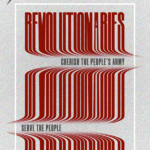
Here is a gathering of some unforgettable names. They are among our cherished crop of revolutionaries. They are our beloved

A year has passed since the first Covid-19 case was publicized and the world, so they say, was never the
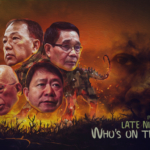
A series of tragicomedy—and deadly—policies and actions by the Duterte regime have plagued the country and the Filipino people alongside
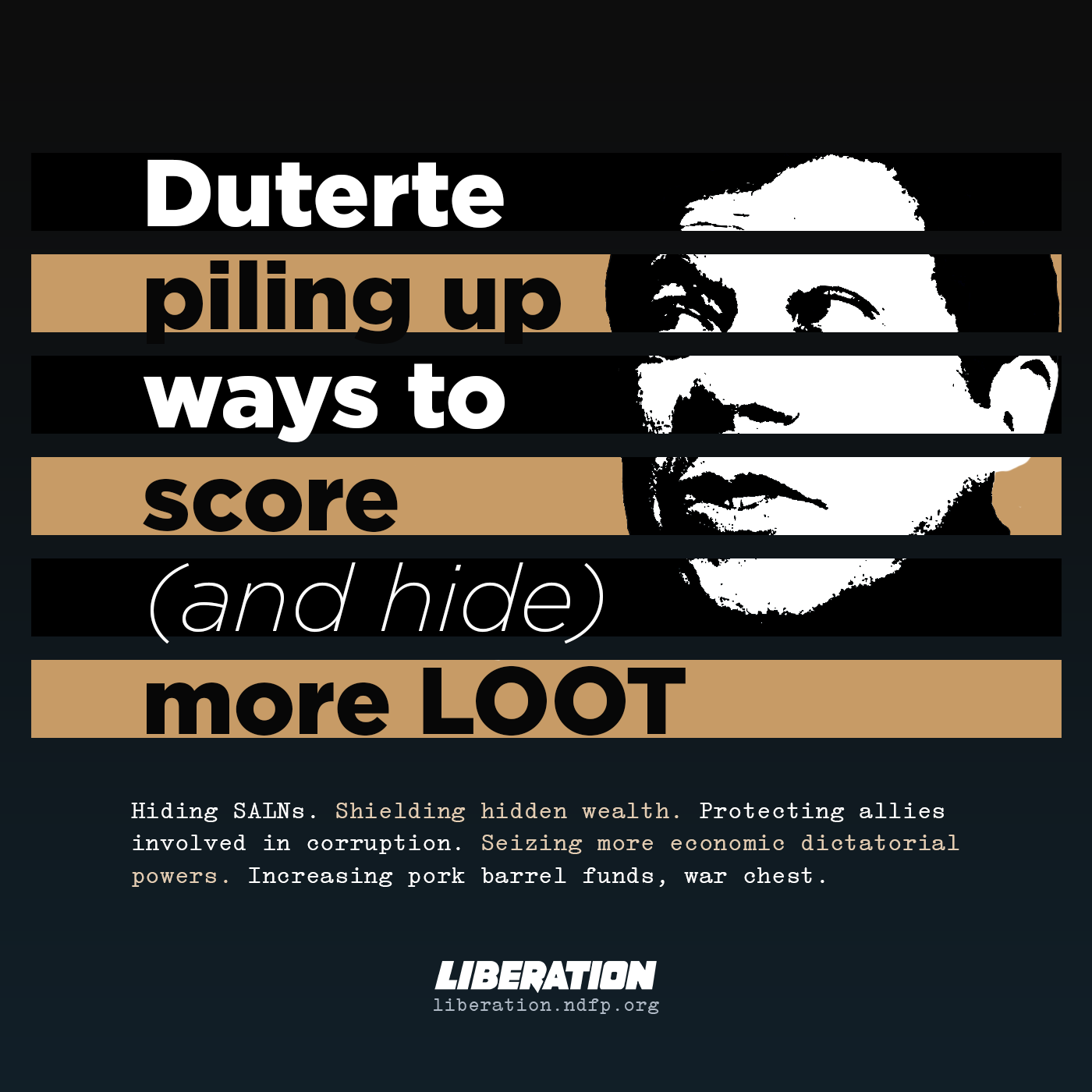
President Rodrigo Duterte promised to reduce corruption to the barest minimum under his watch. But as he approaches the last months of his term, he is not only expanding ways and means to intensify corruption and centralize the power of bureaucratic looting at the Office of the President but also promoting various ways of sabotaging efforts previously pushed by the people for transparency and accountability.
The Ombudsman, with its Memorandum Circular 1, has blocked public access as well as public inspection at reasonable hours of the Statement of Assets, Liabilities and Networth (SALN), for the first time since the law mandating public disclosure of these records was passed in 1989. It blocked even the journalists. Duterte is the first president to have broken the annual tradition imposed by the law for government officials to disclose their wealth with or without media or public request. The last Duterte SALN made available to the public was in 2017. The Ombudsman is also proposing to do away with lifestyle checks. During the 2021 budget hearing, Ombudsman Samuel Martires said his office had stopped lifestyle checks on officials saying the RA 6713 set “unclear” standards. Martires is a two-time Duterte appointee.
Aside from The Ombudsman, trends under Duterte showed the House of Representatives, Senate and the Supreme Court keep SALNs a secret.
The Ombudsman is also rolling back gains from the Ill-Gotten Wealth Law (RA 1379) which put the burden of proof on government officials to show that wealth and assets not commensurate to visible sources of income were lawful.
Duterte, for all his rants and grunts against corruption, has actually protected his allies who were accused of looting the nation’s coffers. Worse, some were “recycled” by reassigning them in another government agency or some were even promoted. Those who were fired were not charged in court. Among his favourites were former military officers Isidro Lapeña, Allen Capuyan and Nicanor Faeldon. Both Lapeña and Faeldon were involved in a corruption and smuggling scandal at the Bureau of Customs but were only reappointed to several government posts after. Ex-colonel Capuyan was assistant general manager for the Manila International Airport Authority who was linked to the smuggling of ₱6.4 billion worth of shabu from China in 2017. Today Capuyan concurrently heads the National Commission on Indigenous Peoples (NCIP) and the secretariat of the National Task Force to End Local Communist Armed Conflict (NTF-ELCAC).
Bills granting Duterte economic dictatorial powers are being railroaded in Congress. House Bill 7884 was passed on 2nd reading in mid- October 2020, following similar railroading of a counterpart bill in the Senate. Certified urgent by Duterte, the proposed law gave the president authority to override all existing processes and regulations that govern business permits and licenses. It covers all agencies of the executive departments, bureaus, offices, commissions, boards, councils and even government owned- and controlled corporations.
The budget for health, education and social services barely increased despite the gargantuan need, but the Duterte administration increased the already huge funding for defense, surveillance and “infrastructure pork programs.” Its budget allocation revealed the armed forces are more hellbent to wage war against the people than project a minimum credible defense posture against external forces. The ground troops of the Philippine Army, which mainly make up the government’s attack force on armed and unarmed revolutionaries, got an additional P800 million this year in the budget. The Air Force and Navy got only P400 million each. The National Task Force to End Local Communist Armed Conflict (NTF-ELCAC) got the P19-billion it had proposed. Plus, it will manage the “Barangay Development Project” of the military which, like pork barrel, is at the discretion of NTF-ELCAC and local governments. As the Commission on Audit (COA) has lamented, it is unable to audit the president’s intelligence, confidential, and NTF-ELCAC funds.###
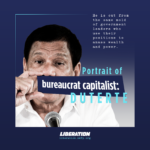
As president, Rodrigo R. Duterte is the current chief of bureaucrat capitalists in the Philippines. The award for being the
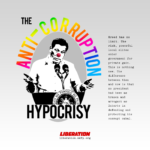
Sometime in September, amid the coronavirus pandemic, a gargantuan corruption scandal of fund mismanagement and overpricing shook up the Philippine
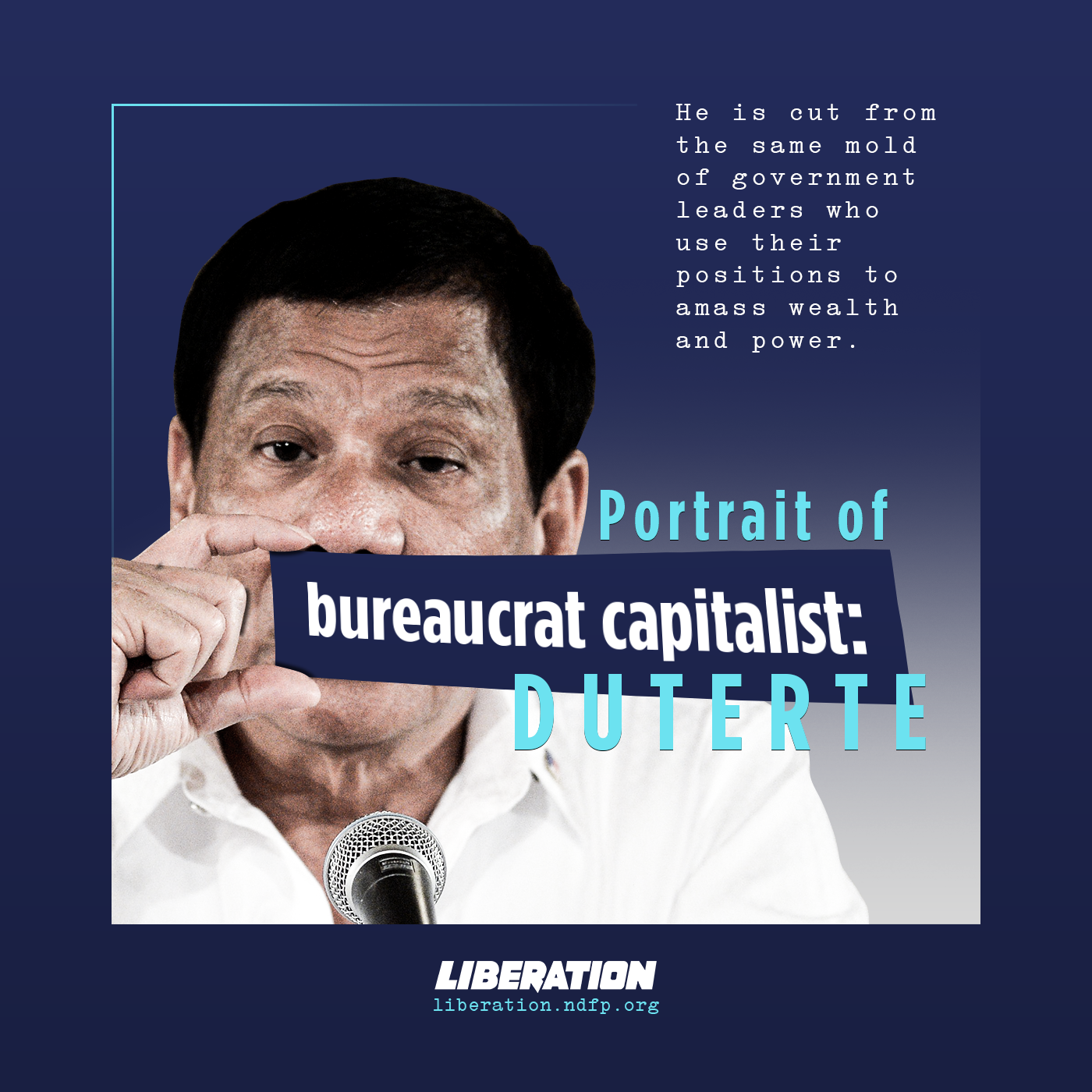
As president, Rodrigo R. Duterte is the current chief of bureaucrat capitalists in the Philippines.
The award for being the chief is immense. More than having the biggest pork of all, he commands all the state armed forces and the direction of patronage politics. He has first dibs on every bone thrown him by his imperialist masters. Early into his presidency, Duterte’s own SALN (statement of assets, liabilities and net worth) revealed his wealth had grown far beyond his income as city mayor before he became president. Despite his continued posturing against corruption, he would not tolerate any probe into his bank accounts and his SALN.
Yet, Filipinos were not born yesterday. Duterte may be crude and vulgar and a mere mayor for three decades before suddenly ascending to the presidency, but he is cut from the same mold of government leaders who use their positions to amass wealth and power. He idolizes and vows to emulate the late dictator Ferdinand Marcos, who was notoriously known for plunder, puppetry, cronyism, and tyranny.
One of Duterte’s earlier “achievements” during his term was helping former chiefs of bureaucrat capitalists such as Ferdinand Marcos and Gloria Macapagal-Arroyo to evade punishments for corruption and war crimes. The Marcoses made leaps in rehabilitating themselves during his presidency when Duterte allowed the burial of the remains of the late dictator at the Libingan ng mga Bayani. Decades-long graft and corruption charges filed against the Marcos heirs and beneficiaries were dismissed. Also, Macapagal-Arroyo was swiftly freed from jail and plunder charges even before Duterte warmed his seat as president.
Under Duterte, the Philippines dropped in worldwide ranking on transparency and fighting corruption. Surveys unearthed complaints that bribery to facilitate government transactions and contracts remain standard operating procedure. He coddled and recycled his appointees when they were caught in scandals.
To this day, there is no closure yet to revelations of mafia-like corruption in Philhealth, Department of Public Works and Highways, Bureau of Correction, Bureau of Customs, Department of Transportation, Department of Information and Communication, to name a few. Worse, these and other departments continue to get larger and juicier pork-laden budget. Every budget season, the Filipino people witnessed spectacles in Congress as Duterte mediated between allies in their competition on who gets how much and how soon in pork barrel insertions.
While bullying certain oligarchs, Duterte favored his cronies through behest loans and investments and getting preferential treatment for their contracts and businesses. One of the conspicuous examples is the case of Dennis Uy, a rumored bagman/dummy of Duterte.
Going by the standard modus operandi of bureaucrat capitalists, namely grabbing “SOP,” “tongpats,” and commissions in contracts and purchases, Duterte and his cohorts have had ample chances to line their pockets. He has a massive infrastructure project called “Build Build Build” or BBB worth trillions of pesos. The few things that limit their greed here are (1) public protests by the affected communities, and (2) his own cohort’s poor planning and execution that led to shelving and revising items in his list of projects.
Aside from BBB, his war-and-profit rule with military generals ramped up the Armed Forces of the Philippines’ (AFP) Modernization Program. This involves barely audited intelligence and confidential funds; and billions of pesos worth of procurement of warships, warplanes and helicopters, drones, missiles, guns, and other war materiel.
Even the natural and man-made disasters have proved to be opportunities for corruption and power expansion for the bureaucrat capitalists such as the disposition of donation, calamity funds, and stimulus funds. In the case of current coronavirus pandemic, there are the questionable purchases of medical supplies, vaccines, the sudden explosion in foreign loans ostensibly for fighting the Covid- 19 pandemic. [Read: Duterte piling up more ways to score (and hide) more loot]
Last but not the least as source of wealth goes: Duterte’s encouragement/protection of gambling (as evidenced by the deluge of Chinese-operated POGOs or the Philippine Offshore Gaming Operators), and his supposed war on drugs that is widely believed as a way to consolidate his drug overlord status in cahoots with the Chinese triad.
Being the topmost government official has proved highly profitable to Duterte and his clique. Using government power, he and his family, his cronies and his druglordship, have expanded in power and wealth.
And so, like the presidents before him, he has been trying hard to cling to his post. There is the term extension through charter change being railroaded in Congress. There is the push intermittently aired by a puny number of “mass supporters” for a “revolutionary government” with Duterte as the head. There is Duterte’s stab at growing his political dynasty, with his adult children led by current Davao City mayor Sara Duterte being urged to run in the 2022 presidential elections. Worst of all, there is his intensifying tyranny as his government tries to implement Martial Law nationwide under various guises.
For all these, what have the people got in the bargain?
Toward the people, Duterte can only renege on his campaign promises and do the opposite of his pretend commitments. It is not in the nature of bureaucrat capitalists to desist from enriching themselves and propping up the semifeudal and semicolonial system. But it is in their nature to lie and justify it in the name of mythical peace and order and economic development. Historically, chief bureaucrat capitalists such as Duterte are only forced to “moderate their greed” in the face of heightened public disgust and ouster calls, or when their term ends despite their efforts to extend it. Due to the ensuing crisis generated by their rule, the people are simply forced to fight back.
Duterte’s rule has worsened the chronic crisis in Philippine society because he did not introduce changes but merely continued the policies that have brought the economy and the people in protracted underdevelopment.
Duterte unilaterally laid waste previous painstaking efforts in peace negotiations with the National Democratic Front of the Philippines to craft agreements on social and economic reforms, which include doable free land distribution, agrarian reform, developing the countryside, and paving the way to national industrialization. The Duterte regime’s abandonment of peace negotiations in 2017 — when the parties were about to sign an agreement on land reform and rural development and on national industrialization and economic development – starkly showed they were not really serious about these reforms.
Instead, Duterte shamelessly bragged about selling even the ancestral domains of the indigenous peoples (IP) to foreign investors. He retained the bogus Comprehensive Agrarian Reform Program (CARP) and helped big landlords and local and foreign capitalists expand their land monopoly control.
Thus, haciendas, vast private landholdings, plantations, mining areas have continued and even expanded during his term. Peasants and IPs have been deemed as “enemies of the state” because they rightfully defend their rights over the lands they’ve tilled and forests they’ve guarded as ancestral domain for generations.
As Duterte collaborates with local compradors and landlords—tying down the country to businesses and geopolitics of imperialists—the Philippines remains backward and pre-industrial. Duterte’s neoliberal economic policies prioritize extractive industries such as mining and logging, agri-plantations for cheap raw materials and labor-intensive and graft-laden “Build, Build, Build” projects.
Duterte has deepened the country’s import-dependence. His regime liberalized the entry even of the Filipinos’ staples such as rice and fish products. After the enactment of a Rice Liberalization Law, imported rice flooded the market and sped up the bankruptcy of around three million long-neglected rice producers. Under Duterte, agriculture has recorded no growth since 2018. It went negative in 2020, worsened by his epic failure of coronavirus pandemic response. Pork and chicken production also went down, as did fish production and catch.
Given that majority of the population remain as poor peasants and oddjobbers, they can barely get by, let alone have savings. In sourcing investments, puppet presidents such as Duterte extol foreign direct investments (FDI) at the expense of local workers, the environment and the development of the country’s own industries. As of this writing, Duterte’s minions in Congress are trying again to railroad the passage of charter change. They harp on “developing the economy” by further opening it up to foreign investments. But, their claims have repeatedly been proven wrong.
Non-government research group IBON said key Philippine sectors have actually been shrinking in relative terms as FDIs into the country increased. Despite the tripling in foreign direct investments from 2000-2004 annual average of US$286 million to US4728 million in 2015-2019, manufacturing’s share in gross domestic product has fallen, as do the sector’s share in employment.
Toward the final months of Duterte’s term, the number of employed Filipinos is even less than when he started as president in 2016.
For the worst economic collapse in history in 2020, Duterte can’t even cite the pandemic as an excuse; (ridiculously, his spokesperson even bragged that his administration has handled the pandemic “excellently”). Jobs generation and whatever growth rate recorded were already decreasing yearly before the pandemic. The worse it gets with the heightened implementation of neoliberal policies, which also shrink protection and government spending on people, the uglier the economy gets and the more people are driven to protest.
This persistent underdevelopment traces its roots to the semifeudal ruling system of oppression and exploitation, perpetuated by the imperialists and their domestic collaborators. This system has generates both armed and unarmed resistance.
Of all post-Edsa regimes, Duterte is the most brazen at breaking the taboo on reimposing Martial Law and praising Marcos despite the latter’s brutal dictatorship and kleptocracy.
Duterte had been obviously itching to declare Martial Law nationwide and he was crude enough to try. But the struggle and consciousness of the Filipino people is already at a state that despite his bloodthirstiness, Duterte can formally impose Martial Law only in a limited way.
After devastating Marawi, the Duterte regime sowed terror on Mindanao by imposing martial law allegedly to “suppress terrorism.”
“On the pretext of a ‘rebellion’, the Duterte regime staged a brutal 147-day siege of Marawi City in a US-directed war that displaced and wreaked havoc on at least 500,000 of its civilian residents and nearby towns,” said Ka Oris, spokesperson of New People’s Army-National Operation Command.
Then it came up with Memo 32 also to sow terror in Negros, Eastern Visayas, and Bicol. Then it issued Executive Order No. 70 to nationalize a scheme to impose a military junta. The NPA’s Ka Oris said EO 70 places the entire government machinery with its resources “at the behest of Duterte and his military gang junta for their whole-of-nation terrorism.”
EO 70 created the National Task Force to End Local Communist Armed Conflict (NTF-ELCAC).
“EO 70 is an integral part of the military Operational Plan (Oplan) Kapanatagan that has been terrorizing and wreaking havoc on communities through sustained military occupation and operations; indiscriminate aerial and artillery bombardment of villages, assassinations of civilians (lumad leaders, peasant activists, trade unionists, professionals such as lawyers, doctors, teachers, even local government officials); illegal arrest, detention and torture of suspected supporters/sympathizers off the New People’s Army; witch-hunting or red-tagging of churches, organizations and mass leaders, and other forms of human rights violations,” said Fidel V. Agcaoili, the late NDFP peace panel chairperson, in a statement released February 5 last year.
Having focused the AFP operations against the Communist Party of the Philippines and New People’s Army, Duterte promised to “annihilate” and “render irrelevant” the revolutionary movement by the end of 2018—a promise made by all his predecessors through all their respective ‘counterinsurgency’ Oplans but failed. Duterte has already failed to meet his self-imposed deadline and extended the target deadline to mid-2019, then the end of 2019, to the end of 2020, and, recently, until the end of his term on 2022.
In pursuing all these martial law-type operations, Duterte and his military generals have relied on the US-supported fascist machinery — the AFP and the PNP—that had been built up, strengthened, and politicized under the Marcos dictatorship.
“Not only were the state armed forces and police not reformed, their brutal and repressive orientation was further heightened, especially with US indoctrination, training and support. Fascist crimes and rights abuses remain unabated,” as the CPP said in a statement marking the 35th year of Edsa uprising this year.
With Duterte’s EO 70, the AFP generals and police commanders have grown even more addicted to war-and-profit. It is now no longer just pabaon (send off) system or the PAMANA (Payapa at Masaganang Pamayanan) program as milking cows under previous presidents. Nowadays they have their own pork barrel (starting from the P19-billion budget of the NTF-ELCAC), of which P16-billions is supposedly for so-called Barangay Development Programs.
Under the rubric of “localized peace engagements” and the Enhanced Comprehensive Local Integration Program (E-CLIP), the NTF-ELCAC “has been devising all sorts of money-making schemes to line the pockets of military and police commanders and local bureaucrats,” said a statement from the NDFP negotiating panel.
Among others, the NDFP said, the following are some of NTF-ELCAC’s money-making schemes:
“The war-and-profit-addicted generals of the AFP are the biggest stumbling blocks to peace and national unity,” said Marco L. Valbuena, Information Officer of the CPP, in a statement on December 8 last year.
Even after the Covid-19 pandemic hit the Philippines in early 2020, the AFP launched a nationwide offensive against the people and NPA. Duterte and his generals ordered their troops to intensify armed operations and bombings even in areas devastated by calamities and government neglect, as well as to the continuing restrictions and clampdown imposed on the pretext of pandemic response. The offensives were carried out at a time when a ceasefire was in place, through the regime’s unilateral declaration and the CPP-NPA’s own declaration in response to the call of the United Nations for global cessation of hostilities.
On top of all of these, the Duterte regime railroaded the passage of Anti-Terror Act in 2020 while the people were hard-pressed with the lockdowns imposed in response to the pandemic.
Ka Oris said that if #Duterterrorism’s twisted logic is to be applied, anyone who dares to air protest or grievance against the regime is automatically red-tagged as a “communist terrorist” or “supporter of communist terrorists,” such as in the cases of celebrities Liza Soberano, Angel Locsin, and Catriona Grey.
Little wonder then that the Anti-Terrorism Act has become the most questioned law before the Supreme Court, with 37 petitions filed calling for its nullification.
Even as Duterte intensified the conduct of dirty war on all fronts, misusing the people’s taxes, he has apparently only succeeded in rousing more people to defy and fight #Duterterrorism and wage armed and non-armed resistance. Instead of intimidating and scaring the people, the Anti-Terror Law has resulted in the growth in strength of a looming anti-Duterte broad united front.
Duterte had made much of his pretend “independent foreign policy” but in truth he is both puppet of the imperialists US and China.
China, to Duterte, sates his greed for money through his BBB centerpiece program, in which overpriced contracts and high interest loans are opportunities for kickbacks; and also for expanding drug trade and distribution with his partner, the Chinese triads.
Despite Duterte’s previous posturing that made it appear he’s critical of the US, the “special relationship” actually remains. He has surrounded himself with pro-US officials and generals used to favoring US policies, be it economic or military. Joint military exercises continue to be scheduled and held. Duterte is abiding by his commitment to the US.
Duterte has never questioned the unequal military agreements, the Military Assistance Agreement (MAA), the Mutual Defense Treaty (MDT), the Visiting Forces Agreement (VFA), the Mutual Logistics Support Agreement (MLSA) and Enhanced Defense Cooperation Agreement (EDCA). This February, Duterte finally put an end to his pretense of reviewing and putting an end to the VFA. He declared without an ounce of shame that the US is free to bring its military troops to the Philippines under the VFA, provided they pay with arms and war materiel.
All these bind the country’s foreign policy to that of the US, making it untrue to describe the Philippines as truly independent. The US remains dominant over the Philippine economy, politics, culture and security. Duterte has to assure the pro-US military and police officers whose loyalty he needed to keep himself in power.
“Duterte is treating the Philippine sovereignty like a commodity,” said the CPP in an editorial published in Ang Bayan on February 21.
The US military is already using again its former Subic Naval Base in Zambales and a new base in Palawan. During the Marawi siege the US reportedly had troops and facilities in Camp Ranao. It has an agreement with the AFP to use or co-locate its own facilities in other AFP military camps.
In 2017, Duterte promised then US President Trump he would terminate the peace negotiations with the NDFP, that he would crush the armed revolutionary movement and push charter change to allow foreign capitalists to fully own landholdings, businesses and other resources in the Philippines. Later that same year, the previous “war-on-terror” bilateral arrangement in Mindanao, led by the US that considered the country a second front of such war, established the “Operation Pacific Eagle–Philippines.”
Yearly, the Philippines has been the top recipient of US military aid in the Indo-Pacific. The government also receive some of the discarded but “refurbished” US war ships and planes, such as the Hamilton-class cutters soon to be downgraded by the Philippine Navy and some attack helicopters used in Afghanistan now with the Philippine Air Force. Exchange of information and training continue to be held to foster the interoperability of AFP and US troops.
Duterte’s smooching with China helped him score funding for his cronies’ BBB projects and loans and investments for his favored compradors. Ang Bayan noted that even as China’s committed loans have yet to reach Duterte, he has already looked the other way and did nothing to stop China’s construction of military facilities in seven artificial islands within the Philippines’ territorial waters.
The Philippines is now in a tighter squeeze between two geopolitical rival powers, no thanks to puppet Duterte.
Duterte knew of the rivalry between the imperialists US and China. When he asked for more guns and bombs from the US in exchange for allowing its military basing here, he justified it saying that anyway, a conflict between China and US will arise in South China Sea and the Philippines will be dragged in it.
Newly installed US President Joe Biden has agreed to sell the Philippines arms and war materiel, disregarding mounting calls both in the US and in the Philippines for the US to stop the aid to the tyrannical and human rights violator that is Duterte. The CPP said Biden seeks to bolster US control of the neocolonial Philippine state, in part, through the AFP. It is part of US plans to be more aggressive at defending its economic and geopolitical interests in the face of growing competition from China. As such, it is doing what it could to ensure the support and loyalty of its obeisant ally in the Philippines.
Months into the end of his term, Duterte appears almost like a resurrected Marcos, or may be worse. His ambition could be high but the span of his reach is limited by the severity of the crisis of the semicolonial-semifeudal system and the persistence of the people’s resistance to his increasingly fascist tyranny.
He is not any less and may even be worse of a butcher-in-chief than his idol Marcos. His rule at barely five years has already killed tens of thousands and jailed hundreds of political prisoners and “drug addicts” and now, “terrorists”. In so short a time he’s become notorious internationally for human rights violations and death squads; and of late, as one of the worse performing presidents in responding to the Covid-19 pandemic.
Emulating Marcos, he has dared to formalize the imposition of martial law through various executive orders and new repressive laws. He is now approaching the end of his term fearing trials for war crimes and rights violations. At that time, like Marcos and Macapagal-Arroyo, he can only hope to be saved from jail time by his fellow former chiefs of bureaucrat capitalists or through succession of his trusted allies or family members.
He has launched with much fanfare a long list of grand BBB infrastructure projects. He has pretentiously laid claim to the recycled neoliberal policies in the semifeudal setting as “Dutertenomics.” But, he failed to even come up with pretend development showcase. All significant data reveal the people’s worsening poverty and underdevelopment. Marcos and even other post-Edsa US imperialist puppets at least had a few years of uptrending statistics.
Duterte had boastfully shopped for new or made-to-order warships, assault helicopters, warplanes, missiles. But what has he got to show for it? The AFP still doesn’t have a minimum credible defense posture to sail or fly in the contested South China Sea. His vaunted independent foreign policy was revealed as a mere ploy to try to secure more benefits. In the end, what he received were far, far short of what were promised him, whether from China or the US, even when he has practically sold off Philippine sovereignty to both imperialist powers.
What the AFP continues to gain is a seemingly upgraded ability to launch a costly, dirty focused counterinsurgency operations that have indiscriminately harmed the people. But this for him is self-defeating, said CPP Information Officer Marco Valbuena. For every bomb dropped and artillery shelled, he and the military stoked mass fury and caused more armed revolutionaries to arise.
As such, Duterte’s self-imposed deadline to crush the armed revolution has degenerated into a semestral, renewable fantasy. In this failure, he truly takes after his idol Marcos. ###
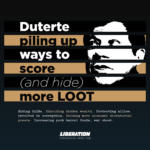
President Rodrigo Duterte promised to reduce corruption to the barest minimum under his watch. But as he approaches the last

Sometime in September, amid the coronavirus pandemic, a gargantuan corruption scandal of fund mismanagement and overpricing shook up the Philippine

Through the years, the Filipino people complained of and protested against corruption in government. Every administration, without doubt and without
